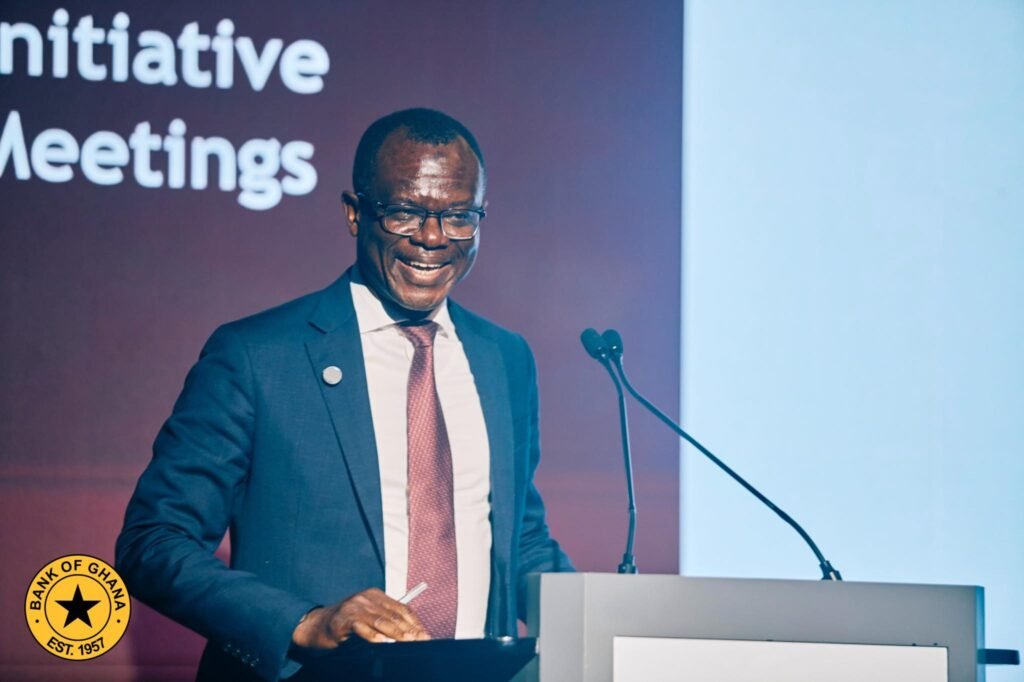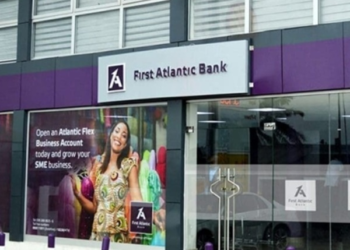Ghana’s financial sector is entering a new era of innovation and inclusion with the unveiling of the Draft National Payment Systems Strategy (2025–2029).
The strategy, presented at the National Payment Systems Workshop 2025, signifies a major milestone in the nation’s pursuit of a robust, forward-looking digital economy.
The workshop, hosted by the Bank of Ghana (BoG), brought together a diverse group of stakeholders from the banking, fintech, and telecommunications sectors. It provided a platform for open dialogue, collaboration, and the exchange of ideas aimed at strengthening the country’s payment infrastructure.
Under the previous National Payment Systems Strategy (2019–2024), Ghana recorded significant progress in modernising its financial ecosystem. There was a remarkable expansion of digital payment channels, deeper interoperability across platforms, and stronger regulatory frameworks that encouraged innovation and trust.
These achievements placed Ghana among Africa’s frontrunners in payment systems development, empowering consumers and boosting access to financial services. Reflecting on these gains, Dr. Zakari Mumuni, First Deputy Governor of the Bank of Ghana, remarked that while the nation’s achievements are commendable, more remains to be done.
“Our journey is far from complete. We must now reimagine our payment systems for the next phase of Ghana’s digital economy, one that is more resilient, inclusive, and globally competitive.”
Dr. Zakari Mumuni
This statement set the tone for a forward-thinking conversation focused on how Ghana can maintain its momentum and adapt to emerging global financial trends.
Embracing Innovation and Tokenisation
The global financial system is undergoing rapid transformation, driven by the rise of virtual assets and tokenisation technologies. These innovations are changing how value is created, exchanged, and distributed, making digital platforms vital in enabling real-time and seamless transactions.
Dr. Mumuni noted that this evolution is redefining economic structures and influencing how countries design their payment systems. He emphasised that Ghana must stay ahead by adopting technologies that promote efficiency and inclusion while maintaining financial stability.
“Digital platforms have become the new arena where value is created, exchanged, and distributed. These platforms are revolutionising commerce and spurring innovation in financial services.”
Dr. Zakari Mumuni
By acknowledging the transformative power of these technologies, the new strategy positions Ghana to remain competitive in an increasingly digital global marketplace.

Driving Open Banking and Data Interoperability
A key pillar of the 2025–2029 Payment Systems Strategy is the promotion of open banking and data interoperability. This framework will enable financial institutions, fintech firms, and other service providers to securely share data, thereby encouraging competition and innovation in the financial services sector.
The Bank of Ghana has already laid the groundwork for this transition through initiatives such as electronic Know Your Customer (eKYC) systems and trusted digital identity frameworks. These have made it easier and more cost-effective for non-bank entities to participate in the payment ecosystem.
“Initiatives such as electronic Know Your Customer (eKYC) frameworks and trusted digital identity systems have made it easy and cost-effective for non-bank entities to participate in the payment ecosystem, thereby expanding financial inclusion in new and meaningful ways.”
Dr. Zakari Mumuni
Through these efforts, the Bank of Ghana aims to deepen financial inclusion and create new opportunities for underserved populations and small businesses.
Prioritising Cybersecurity and Consumer Protection
While the growth of digital transactions has created new opportunities, it has also exposed users to cybersecurity threats and online fraud. Dr. Mumuni cautioned that these risks must not overshadow the progress made in financial digitisation.
“We must not allow these risks, though formidable, to erode the considerable progress we have made. Our collective resolve, spanning regulators, innovators, and industry stakeholders, is stronger than the challenges confronting us.”
Dr. Zakari Mumuni
To this end, the new strategy incorporates robust measures to enhance cybersecurity, improve risk management, and strengthen consumer protection frameworks. Collaborative efforts among regulators, payment service providers, and technology companies will be essential to maintaining trust and stability in the system.
Throughout his address, Dr. Mumuni emphasised the importance of collaboration and collective action. He commended the BoG’s internal team and its partners in the financial sector for their role in shaping Ghana’s digital transformation. “Together, we have laid a solid foundation, and together, we must now build upon it,” he said.
The workshop encouraged participants to challenge assumptions, share ideas candidly, and propose forward-looking solutions that align with Ghana’s vision of a secure, inclusive, and innovative payment ecosystem.
The Draft National Payment Systems Strategy (2025–2029) is more than a policy document—it is a transformative roadmap for the future of Ghana’s digital finance ecosystem. By combining innovation, resilience, and inclusiveness, the strategy seeks to solidify Ghana’s leadership in digital payments across Africa.
As stakeholders refine and implement this blueprint, the nation stands on the threshold of a new phase in its digital revolution. With strong regulatory support, collaborative partnerships, and a commitment to cybersecurity and trust, Ghana is poised to become a model for digital finance transformation across the continent.
READ ALSO: Mahama, Macron Deepen Ghana–France Partnership at Paris Peace Forum























